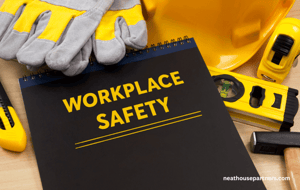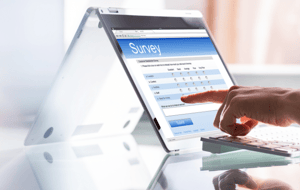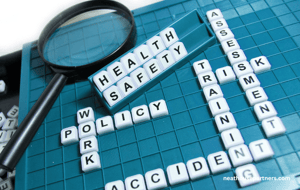Health And Safety Advice For Start-Ups And SMEs
The Health and Safety at Work Act (1974) must be followed by all businesses, regardless of size.
James Rowland
Commercial Director James leads Account Management, Sales and Marketing at Neathouse Partners.Date
26 September 2022Updated
10 April 2024
The Health and Safety at Work Act (1974) must be followed by all businesses, regardless of size. Whether you have 5 or 5,000 employees, it makes no difference.
Health and Safety for small to medium enterprises can seem overwhelming; it must be managed and managed effectively in accordance with the law.
Health And Safety Duties of the Employer
As a business owner, you are accountable for the health and safety of all those who are impacted by your operation.
This covers the personnel and everyone on or near your property, and anyone impacted by the goods or services you offer. For instance, customers, clients, and the general public.
A fantastic place to start for start-ups and SMEs is to include a policy on health and safety at work in your employee handbook.
Additionally, a documented health and safety policy that is disclosed to all employees is required for all businesses with five or more employees. What use is it if nobody on your staff is aware of it?
An employer must have one of the ‘Health and Safety Law: What You Need to Know’ posters on display at your workplace. Another requirement would be employers liability insurance to stay compliant with Health and Safety requirements and the law.
Health and Safety in start-ups and SMEs will require employers to undertake various risk assessments depending on the businesses’ tasks and procedures.
Common ones are general premises risk assessment, working from home, lone working, working at height, manual handling and display screen equipment.
Specific risk assessments are required for groups of people, these include.
- Young persons – any employees or casual workers under 18 are required to have a young person’s risk assessment.
- Persons with disabilities need to be considered when writing up your Health and Safety policy. This is because escape routes need to be assessed in the unfortunate event of a fire, and procedures are required to accommodate disabled persons and other daily business operations.
- Pregnant women – pregnancy risk assessments are required for all women and their children, ensuring they can avoid any unnecessary dangers in the workplace.
How To Conduct A Risk Assessment
Risk assessments are a legal requirement for all businesses with five or more employees.
Below are some key points to factor in when conducting them:
- Identify the Hazard – What may possibly cause harm?
- Determine the risk level – Likelihood of getting injured times by the severity of the injury
- Control measures – What can be put in place to stop the likelihood of injury and minimise the severity of an injury?
Health and Safety Law You Must Comply With:
1) The Management of Health and Safety at Work Regulations 1992
Management regulations oblige every employer to make an appropriate and sufficient assessment to which they are exposed during work.
2) The Workplace (Health, Safety and Welfare) Regulations 1992
This act stipulates general requirements on accommodation standards for all workplaces. Regulations impose requirements concerning the maintenance of the premises, ventilation, lighting, temperature, cleanliness, welfare facilities, and many more.
3) The Manual Handling Operations Regulations 1992
Regulations for businesses to follow when it comes to the risks that can be involved when manual handling occurs.
4) The Provision and Use of Work Equipment Regulations 1998 (PUWER)
PUWER regulations place duties on people and employers who own, operate, or control work equipment. While also placing responsibilities on the business whose employees use work equipment, whether owned by them or not.
5) The Personal Protective Equipment at Work Regulations 1992
The regulation places a duty on every employer to ensure that suitable personal protective equipment (PPE) is provided to employees who may be exposed to a risk to their health or safety while at work.
How Neathouse Partners Can Assist
Here at Neathouse Partners, we have years of specialist experience in dealing with Health and Safety in small to medium enterprises.
We offer advice and updates, providing your company with your own dedicated Health and Safety Consultant so that you can be confident that all of your bespoke documentation and processes are aligned with your operations. These include Policies, Fire Safety, Risk Assessments, Method Statements and much more.
Perfect for a business that needs to be compliant but just does not have the time or resources
For further advice or support, contact one of our experts today on 01244 893776.
Related blog posts

Promoting a Culture of Safety: Strategies for Encouraging Employee Buy-in and Engagement

Data-Driven Health and Safety: A Crucial Approach for UK Businesses
Have questions?
Get in touch today
Contact us, and our team will get back to you within 24 hours. We value your questions and are committed to getting them answered quickly.


Hello! I am Nicky
Just fill in the form below with your details, and I will arrange for a member of our team to give you a call.
By clicking, you agree to our Privacy Policy






